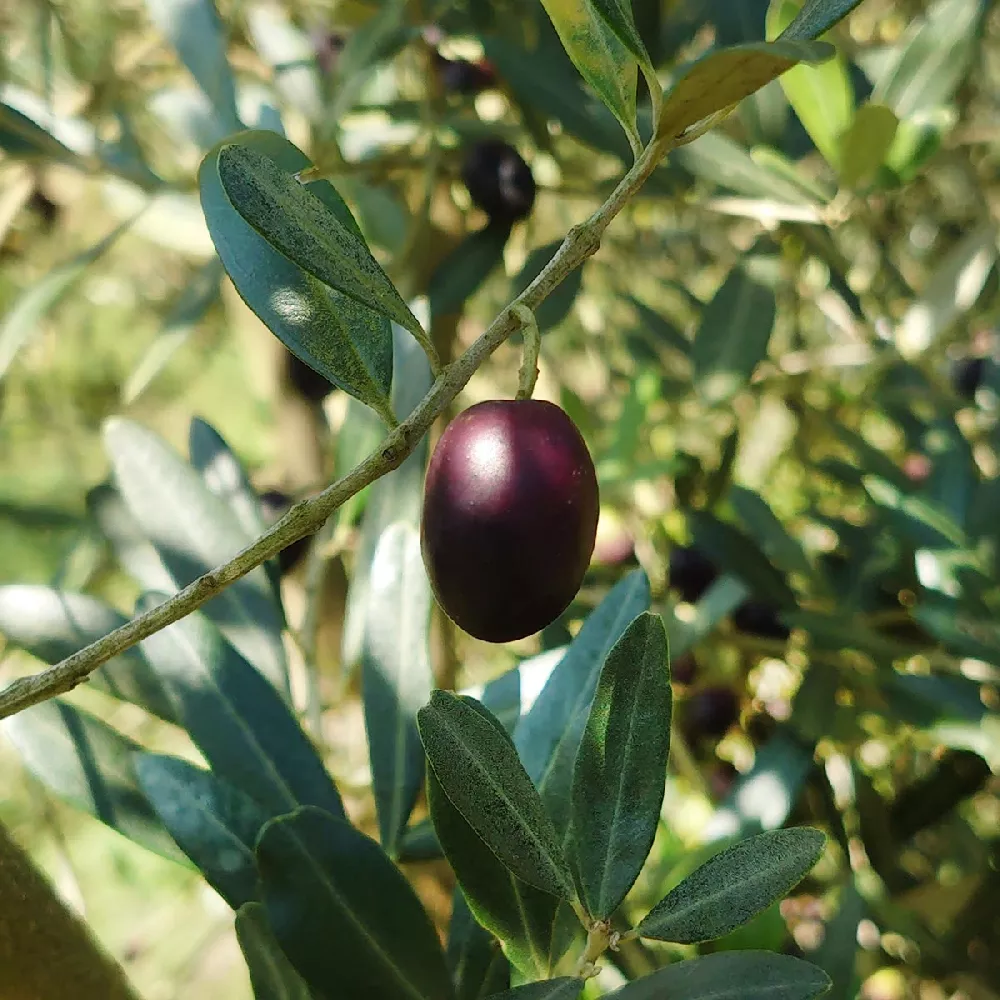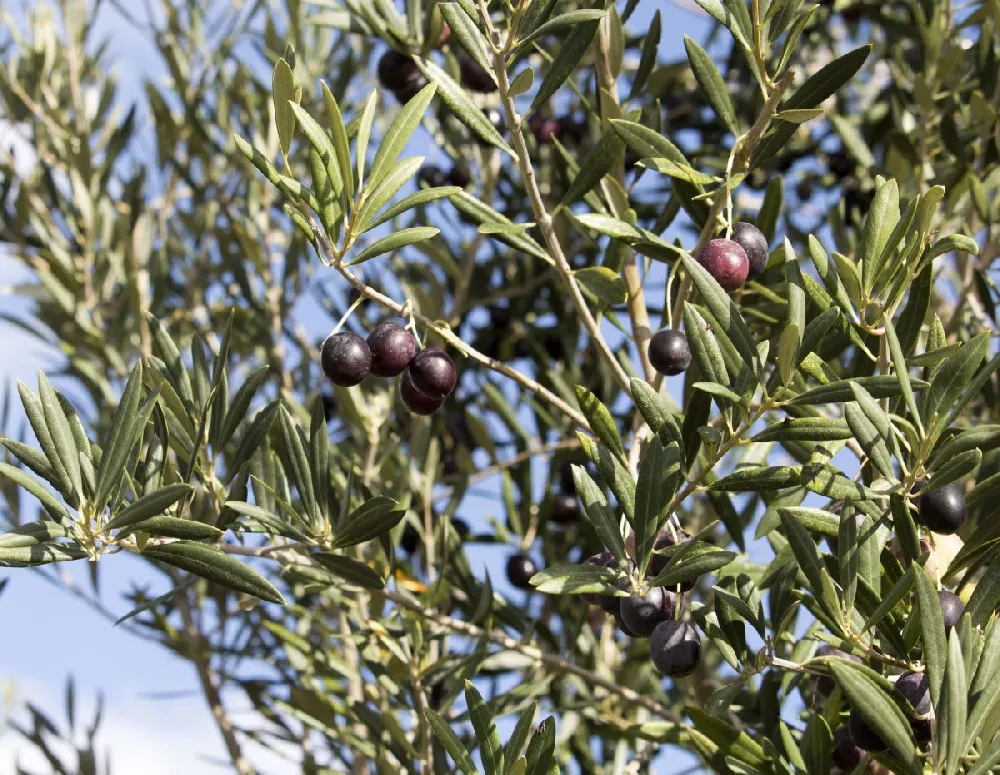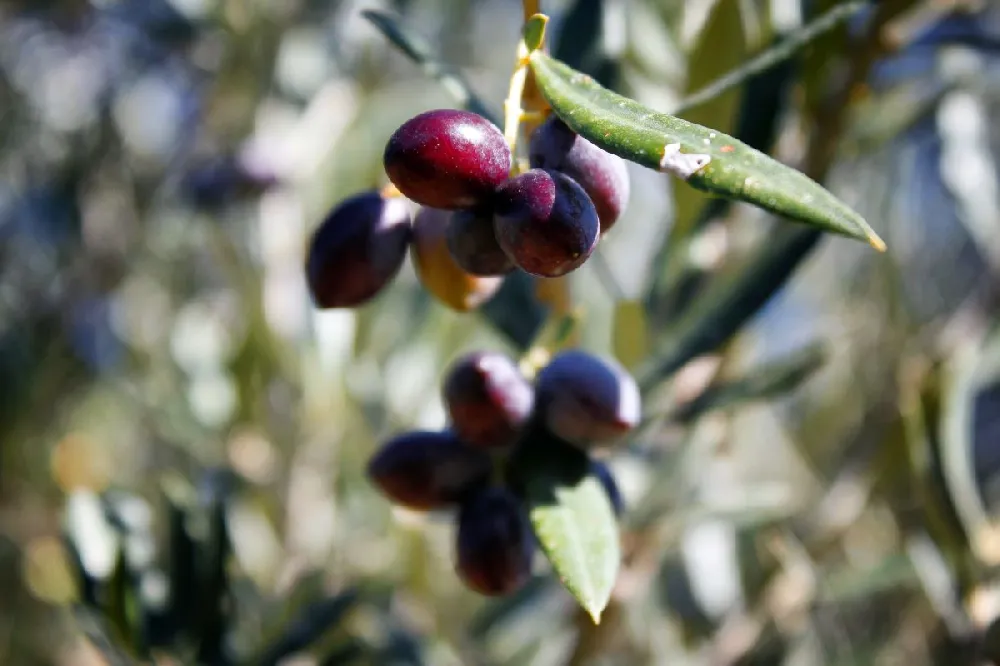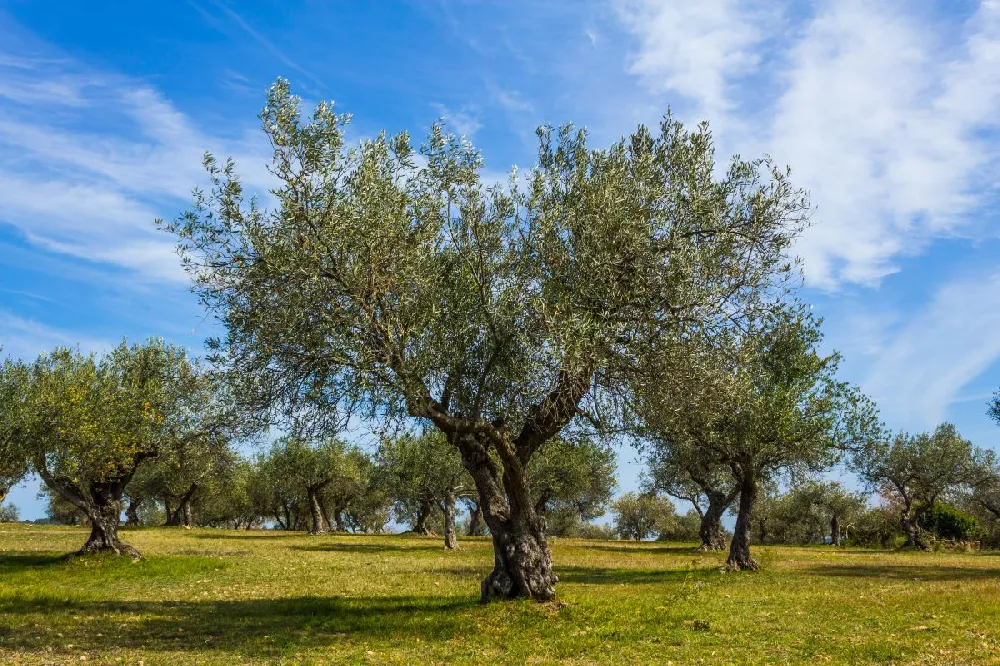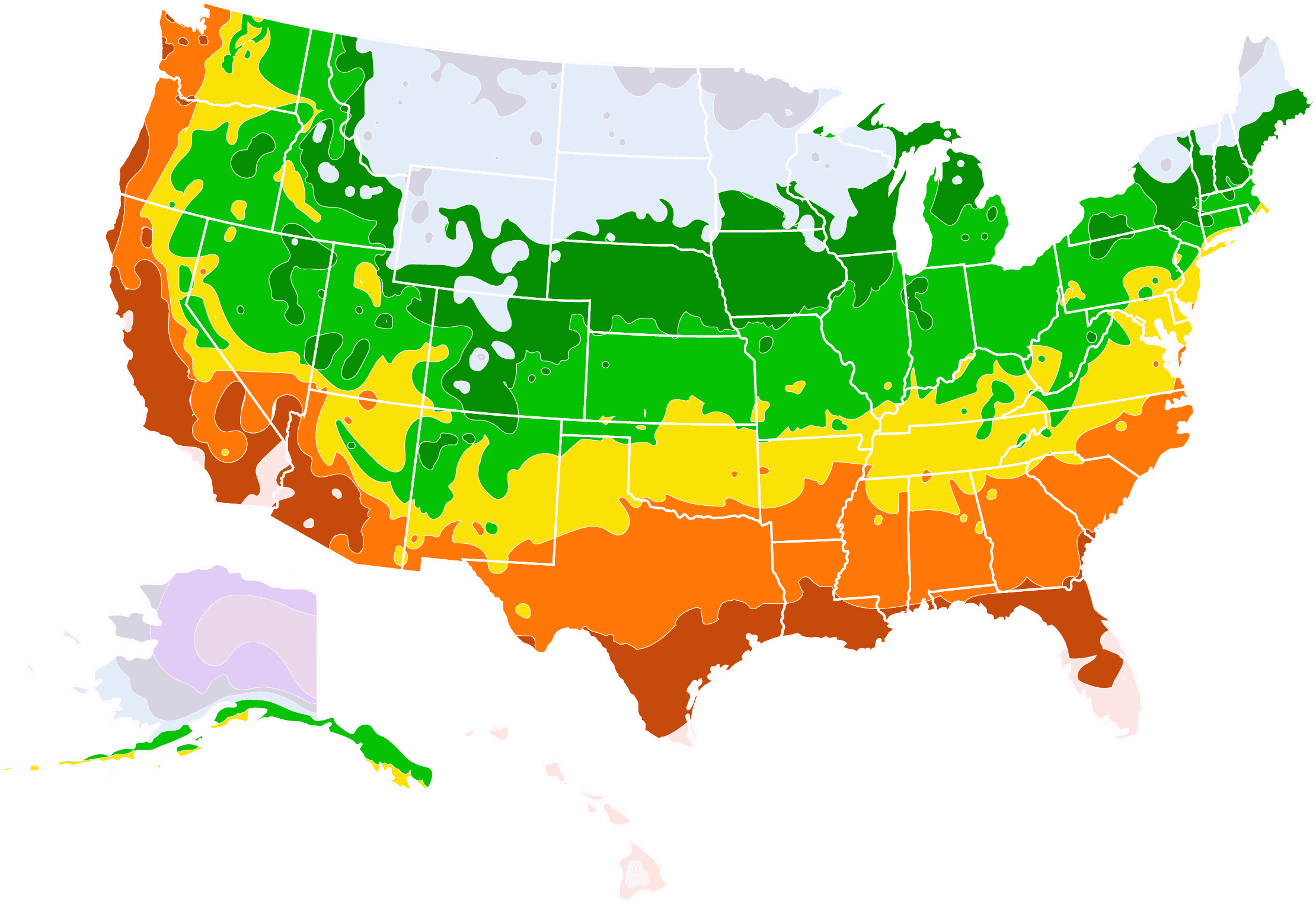- Home >
- Olive Trees >
- Greek Olive Tree
Greek Olive Tree for Sale - Buying & Growing Guide
- Ships in 1-2 days
- 1-Year Warranty Eligible
- Pots or accessories are not included unless specified in the product options.
Shipping Details:
Products shipped through FastGrowingTrees.com. Once your order is shipped, you’ll receive an email with a tracking number and estimated delivery date. Most orders will ship immediately.
If you love the taste and texture of an olive, then you should consider growing some of your own. Fortunately, the Greek olive tree, also known as Olea europaea, will allow you to grow olives of your own with ease. This plant is typically easy to care for and grows well in containers, allowing even those in colder climates to grow it indoors. Not only does the Greek olive tree give you olives, but it also looks great all year with its glossy green leaves and its off-white flowers that bloom in clusters.
- The Greek olive tree grows well in containers, allowing for overwintering.
- This tree boasts clusters of off-white flowers next to glossy evergreen leaves.
- Flavorful olives arrive after just a few years of life.
Plant Care
Sunlight

This tree grows best in full sunlight — a minimum of six hours each day.
Watering
Avoid overwatering. Monitor the soil and add water when it is dry.
Fertilizing

Fertilize in spring and in late summer with a nitrogen-heavy blend.
Planting and Care
Planting instructions
Those that live in the southernmost parts of the United States, including parts of Florida, Texas, and California, can grow a Greek olive tree outdoors year-round. Those who live in more northern latitudes will need to grow their trees indoors for at least part of the year, if not all of it. In either setting, your Greek olive tree should receive at least six hours of sunlight per day. Those growing their plants indoors will need to select a container that has great drainage and is large enough to accommodate this plant’s root system.
Watering and nutrients
Overwatering is a serious concern for Greek olive trees and can quickly lead to a decline in health. Provide water only when the soil has become dry, and make sure that the soil in which your tree grows can drain that water efficiently. You can fertilize your Greek olive tree twice per year, once in the spring and a second time in the fall. When you fertilize, use a blend that has plenty of nitrogen.
Pollination
If you want to grow Greek olive trees with the goal of harvest, you’ll need to pay close attention to the fertilization process. Greek olive trees are technically self-fertile, meaning you need only one to produce fruits. However, with multiple trees allowing for cross-pollination, your olive yields will be much larger. Many Greek olive trees rely on the wind for their pollination. However, if you grow yours indoors, you’ll likely need to conduct hand pollination to produce fruits.
Pruning
The best time to prune a Greek olive tree is in the late spring to early summer months of May, June, and July. When you prune, use sterile shears to remove any part of the tree that is damaged or dying. You should also focus on thinning the canopy of this plant. Thinning the canopy allows for better air circulation, leading to fewer disease issues, and allows light to penetrate the canopy and reach each leaf more effectively.
Pests, diseases, and animals
There are a few pests that commonly attack the Greek olive tree. Among these pests are multiple types of scale insects, a few kinds of weevils, and lace bugs. However, those growing their trees indoors will likely face fewer insect problems, as an indoor location is less likely to harbor those bugs. Whether you grow your Greek olive tree indoors or outside, you should remain vigilant of diseases, with anthracnose being the one you should watch out for the most.
Harvesting
Greek olive trees are usually ready for harvest in the fall, with November often being the peak harvest month. When olives begin developing on your Greek olive tree, they will have a dark green color. You should wait until the olives turn nearly black before you pick them off the tree. Once you remove your olives, you can eat them raw or incorporate them into many dishes. As the native range of this plant suggests, these olives will taste fantastic in many Mediterranean dishes.
Achieving maximum results
The two factors that will contribute most to the success of your Greek olive tree are sunlight and soil drainage. Typically, the more sunlight you give this plant, the better able it will be to produce many healthy olives. Drainage is equally crucial for Greek olive plants and maybe a challenge for those who grow this plant in containers. The container you choose should have a large drainage hole, multiple drainage holes, or consist of a permeable material that allows water to drain freely.
FAQs
Where do olive trees come from?
How long do olive trees live?
One of the most interesting aspects of olive trees is that they can live incredibly long lives. Many Greek olive trees will have a lifespan that covers several centuries. Some of these trees may even reach more than 500 years old. However, the oldest known olive tree is even older than that, as it appears to be more than 1,500 years old. However, the olive trees you grow in your yard or home are unlikely to reach that age.
How fast do olive trees grow?
The growth rate of a Greek olive tree depends on the growing conditions where it lives and the care you provide it. With the right care and attention, many Greek olive trees will grow about 1 foot per year. However, if you grow your Greek olive tree indoors or in a container, you can expect the growth rate to be a bit slower than that.
Compare Similar Products
You can't add more Product Name - Product size to the cart.
OK